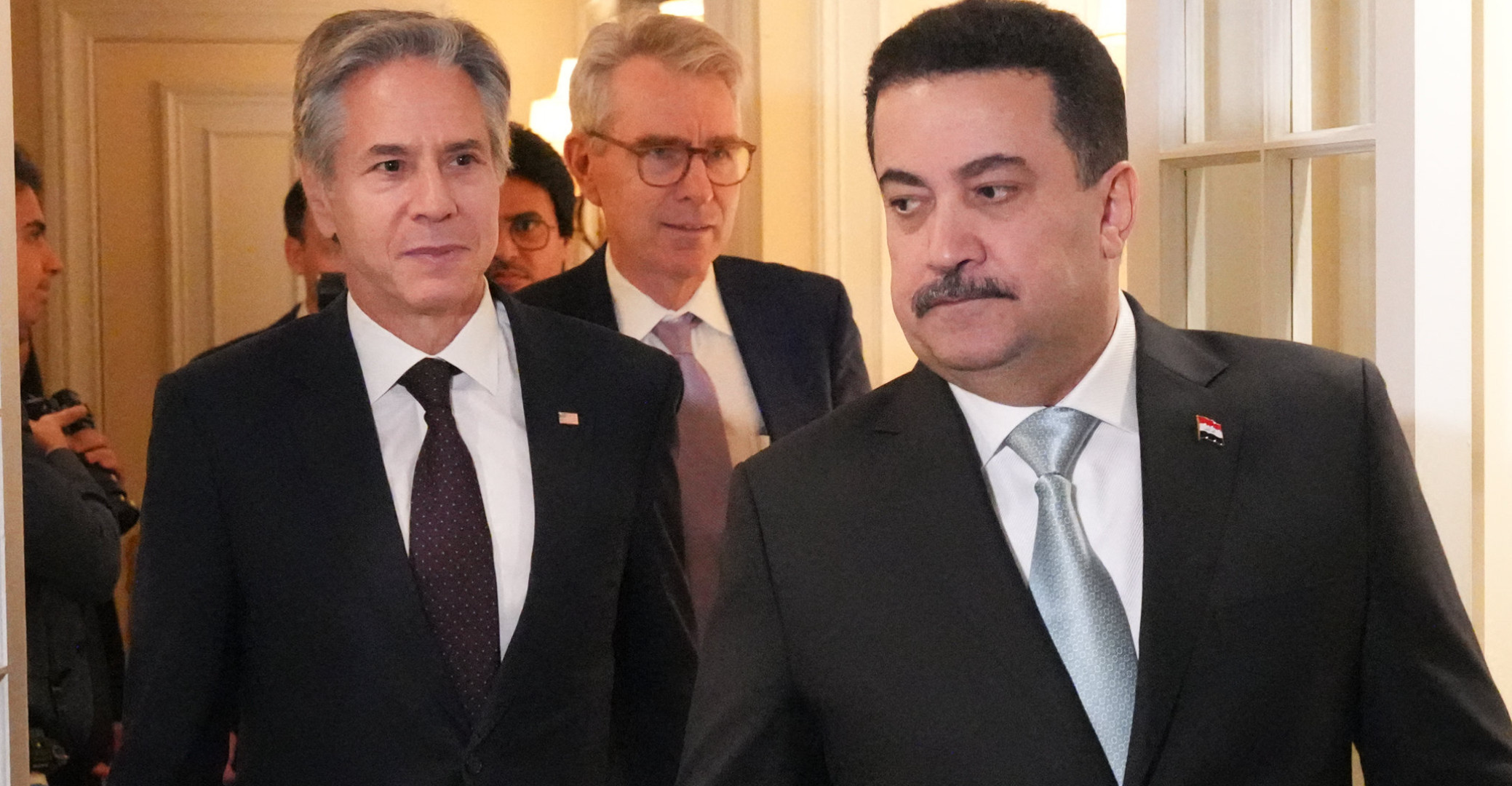Informed political sources revealed, yesterday , Saturday, that US Secretary of State Anthony Blinken conveyed direct “threatening” messages to Iraqi Prime Minister Mohammed Shia al-Sudani regarding the armed factions supported by Iran in Iraq .
The sources said “Blinken clearly and directly conveyed threatening messages from Washington during his meeting with Al-Sudani regarding the armed factions in Iraq, the future of those factions, and their movements .”
She added that Blinken “stressed that the new US administration will work with all its strength and determination to end any influence of these factions, especially after they carried out cross-border operations by striking US bases in Syria and targeting various targets inside Israel throughout the past period .”
She explained that “Minister Blinken warned Al-Sudani against these factions carrying out any military actions inside Syria during the next phase, with the support of Tehran,” and “he held the Iraqi government responsible for any operation carried out by these factions .”
According to those sources, the US Secretary of State stressed the “necessity of controlling the factions and working in a real way to disarm them during the next stage, as they have become a threat to security in the region, not just Iraq. Otherwise, Washington will have a role in limiting those factions through sanctions as well as specific military operations .”
And the day before yesterday, Friday, US Secretary of State Anthony Blinken visited Iraq in an “unannounced” manner, where he met with Prime Minister Mohammed Shia al-Sudani .
According to the US State Department, Secretary of State Anthony Blinken urged the Iraqi government to support the democratic transition in Syria after the fall of the Bashar al-Assad regime, noting the importance of Iraq’s role in strengthening its sovereignty and regional stability .
The US State Department quoted Blinken as affirming during his meeting with Al-Sudani Washington’s commitment to supporting Iraq’s security and sovereignty, stressing the need to continue efforts to ensure that ISIS does not return. He considered that the positive transformations witnessed by Iraq enhance its chances of future success. He also touched on the importance of the role of Iraq and the countries of the region in supporting Syria to achieve a comprehensive political transition that protects minorities and ends sectarianism.






